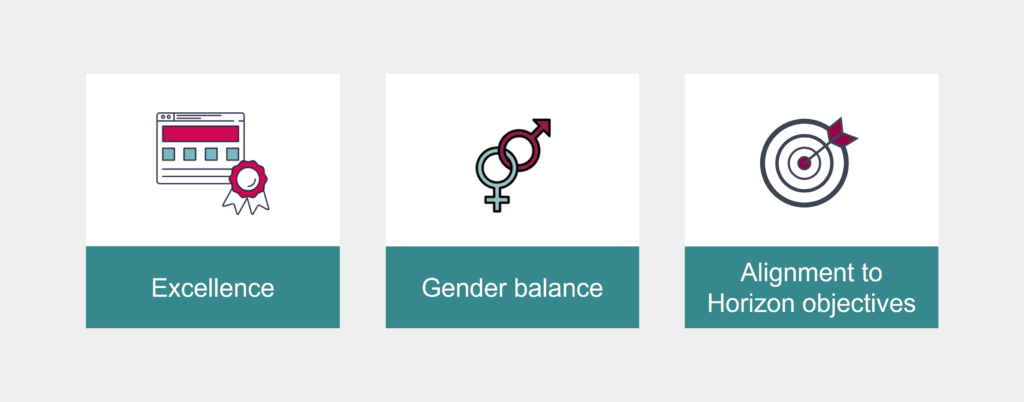Stand out from the crowd – priority criteria for equally scored MSCA DN proposals
28th September 2023 at 5:33 pm
Proposal writing time is currently in full swing for the next Marie Skłodowska-Curie (MSCA) Doctoral Networks (DN) call coming up on 28 November 2023. With this year’s call again funding a maximum of 15 PhD positions, we expect the competition for funding to be as fierce as ever. We thought to share a few pointers which could help make the difference in your proposal and, most importantly, in the ranking, it will be given during the review.
Priority criteria for equally scored proposals

The priority criteria for equally scored proposals are no mystery. They are clearly outlined in the Horizon Europe Work Programme 2023-2024 – 2. Marie Sklodowska-Curie Actions, but often go unread. When proposals are awarded the same score (ex-aequo proposals), as there is never enough budget available for all excellent and highly scored proposals, the Research Executive Agency (REA), the administrative arm of the EC for the MSCA DN programme, needs to determine an order of priority. As stated in the MSCA Work Programme (pg. 87-88), the criteria followed in this prioritisation are the following:
- “The proposals will be prioritised according to the scores they were awarded for the criterion ‘Excellence’. When these scores are equal, priority will be based on scores for the criterion ‘Impact’.
- If necessary, the gender balance among the supervisors named in the proposal will be used as a factor for prioritisation.
- If a distinction still cannot be made, the panel may decide to further prioritise by considering other factors such as gender and other diversity aspects in the research activities, participation of the non-academic sector (including involvement of SMEs), geographical diversity, international cooperation, favourable employment and working conditions or relationship to the Horizon Europe objectives in general. These factors will be documented in the panel report.”
What does this actually mean for your proposal?
These priority criteria may be used to guide already the preparation of your proposal, from considerations about your consortium composition, to focus areas within the proposal documents themselves. It is unlikely that your proposal will be scored high enough to be considered for funding if your Excellence section is not indeed excellent. As the Excellence section covers the science and training of your DN, you will already give it the appropriate attention. From the priority criteria, it becomes clear that the Impact section should also receive special attention, as this may be where you can really stand out from the crowd. Drafting the Impact section should thus not be an afterthought of the proposal writing process. Carefully read the requirements of the different Impact sub-headings and address all points. You may note that many of the factors listed under point 3 above may be addressed in the Impact section, such as the important involvement of the non-academic sector, especially SMEs, and favourable employment and working conditions.
We also recommend taking gender balance and geographical diversity into consideration when building your network. Especially in fields dominated by a certain gender, it can be favourable to ensure gender balance in the supervisory teams of your Doctoral Candidates. The same is true for network governance and decision-making. As for geographical diversity, it may be worth considering not just a nice mix of countries in general, but factors such as involving partners from widening countries.
How can we help?
We at accelopment have a long-standing experience in supporting and partnering in ITNs in Horizon 2020 and have successfully supported the Horizon Europe DN proposals SYNSENSO, MITGEST, MIRELAI, BREAKthrough, CONcISE, DarChemDN and MobiliTrain, reaching from Life Sciences to ICT and Chemistry.
We specialise in supporting Proposal Writing as well as in delivering Transferable Skills Training for Early Career Researchers. How? We have a highly qualified team and, through the synergy of each individual’s expertise, we make sure to go the step further that is needed to make your project stand out. For advice on how we can support your MSCA DN proposal get in touch with one of our experts, who will be happy to help and answer DN-related enquiries.

Jacqueline Strehler
Research & Innovation Project Manager

